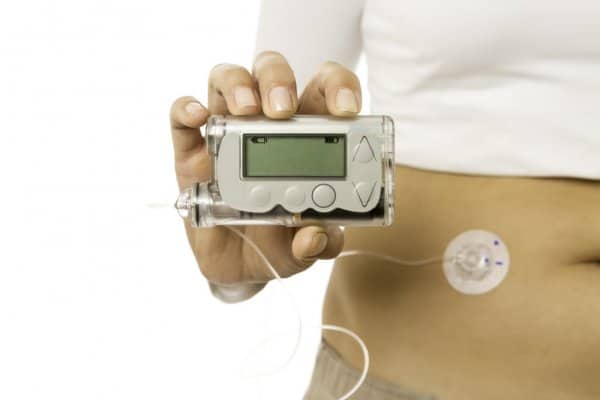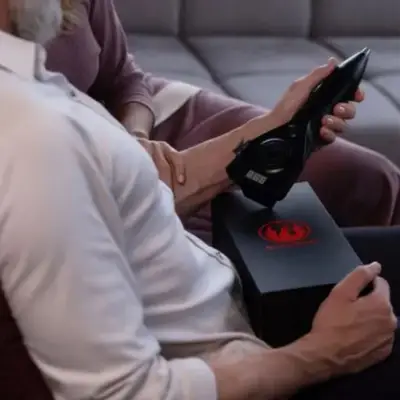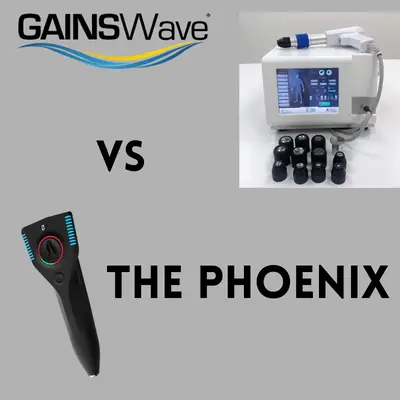Pain is a challenging experience for many people because it interferes with our daily activities and professional lives. It can also be incredibly difficult for people living with chronic diabetes. People are starting to turn to TENS units, a unique device that can treat all pain types. But can you use it with an insulin pump?
TENS units for diabetics with insulin pumps are effective for people whoexperience pain in the feet or hands. Various studies show a TENS unit can relieve pain from diabetic neuropathy (Diabetes nerve damage).
Check out how to place a TENS unit to get pain relief from:
Gout
Plantar Fasctiitis
So, what is DPN? Diabetic neuropathy is a complication in long-term diabetes that causes numbness and chronic pain. This pain is extra painful at night and can interrupt sleep, daily moods, and other functions in up to 20% of diabetes patients.
Since the late 1990s, TENS therapy has been used as an effective treatment option for DPN. The TENS unit’s electrical pulses inhibit the spinal cord’s transmission of pain to the brain. The TENS unit treatment usually lasts around 30 minutes. You can safely use a TENS unit multiple times daily as needed for pain relief.
When gathering feedback from insulin pump users, some people will utilize TENS for pain AFTER they take off the pump. Some TENS units will explicitly say not to use it simultaneously with other devices. So it is always better to be safe than sorry.
Want to know where a TENS unit can be placed? Check out my TENS placement guide here. Below are a few common TENS electrode pad placements:
What is TENS?
A TENS unit is a battery-operated mechanism that helps treat pain. It transfers electrodes to your skin through electrical impulses.
This low-voltage charge creates a pulse, which stimulates nerve fibers. These nerve fibers limit the pain signals it sends to the brain because of the TENS unit. The electrical charge also allows your body to release natural hormones that reduce your pain.
You can receive TENS treatments from a device at the doctor’s office, physical therapist’s office, or from a machine within your home.
How Effective is TENS?
There is much research on TENS and its effectiveness. The results go both ways, but concrete evidence will work successfully for various people. The extent and duration of the pain relief will be different for each person. Initially, TENS will deliver pain relief for the people who try it. But as people use it for a longer time, it will not be as effective.
People can adjust the TENS unit settings based on their preferences. Depending on the amount of pain relief needed, a user can change three things: the intensity, frequency, and duration.
- Intensity – enables the person to adjust the electrical stimulation intensity through a dial.
- Frequency – this represents the number of pulses per second. High-frequency electrical vibrations will fall between 80-120 cycles per second. Low-frequency vibrations will be 1-20 cycles per second and address chronic pain.
- Duration – during each pulse, this is the number of microseconds a current enters the skin.
TENS Unit Side Effects
Most people can safely use a TENS unit without experiencing harmful side effects. But the tingling, prickling, and buzzing sensation could be uncomfortable for some users. For those who are allergic to adhesive pads, a TENS unit could cause irritation and skin redness. If this problem occurs, the person can switch over to a hypoallergenic option.
People must also ensure that they do not let the electrodes meet the eyes or front neck. Electrodes can cause spasms and lower blood pressure. TENS units can cause elevated pressure on the eyes with the electrodes, which could create an injury.
TENS Unit Benefits
Utilizing a TENS unit can be a trusted noninvasive strategy for pain relief. People are less likely to take pain medications, which can cause addiction feelings in the long run.
Because TENS units are small and compact, they provide a portable option for people to carry around. The device can clip on to a built or fit inside someone’s pocket. It can provide quick access to pain reduction if someone needs it throughout the day.
TENS Unit Drawbacks
TENS is usually a well-tolerated treatment for most people. People occasionally report minor adverse impacts, and some of these are skin irritation. Because of the electrode gel drying, this issue occurs in almost one-third of the patients. If users learn the proper care and use of TENS units, it will minimize this side effect.
If a patient continues to utilize a TENS unit improperly for too long, skin burns may occur also. Wherever a user senses a burn developing, they should not place the electrodes near this area.
Doctors also advise the following types of people who should avoid TENS units:
- People who experience epilepsy
- People with heart complications
- People who use a pacemaker or other type of metal or electrical implant
- Pregnant women should avoid using TENS units in the pelvic and abdominal areas
Other Uses for TENS Units
TENS units might not effectively treat all kinds of pain, but here are some other situations where it could be useful:
- Arthritis pain, especially for rheumatoid arthritis
- Post-surgery pain
- Pain from a spinal cord injury
Final Wrap-Up
TENS units are a great medication free way to get instant pain relief. They are affordable and safe to use.





3 responses to “Can You Use a TENS Unit with an Insulin Pump?”
[…] TENS units are typically wired. They have lead cables that connect the electrode pads to the control unit. […]
[…] a possibility that a TENS unit can reduce your spinal stenosis pain. Just keep in mind that the TENS unit won’t cure your spinal stenosis and is only a means of pain relief and improved […]
[…] can also pick a TENS unit that has heat therapy involved. Pain responds well to heat, and you may enjoy it to combine TENS […]